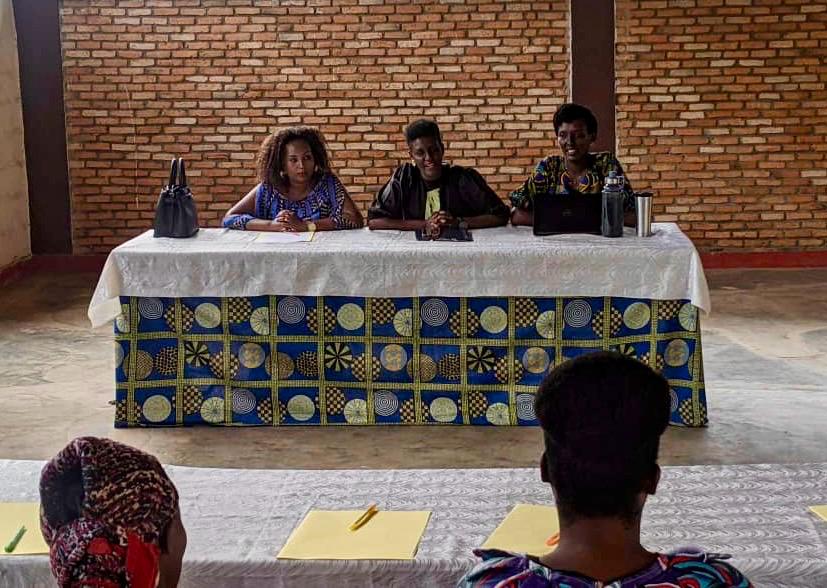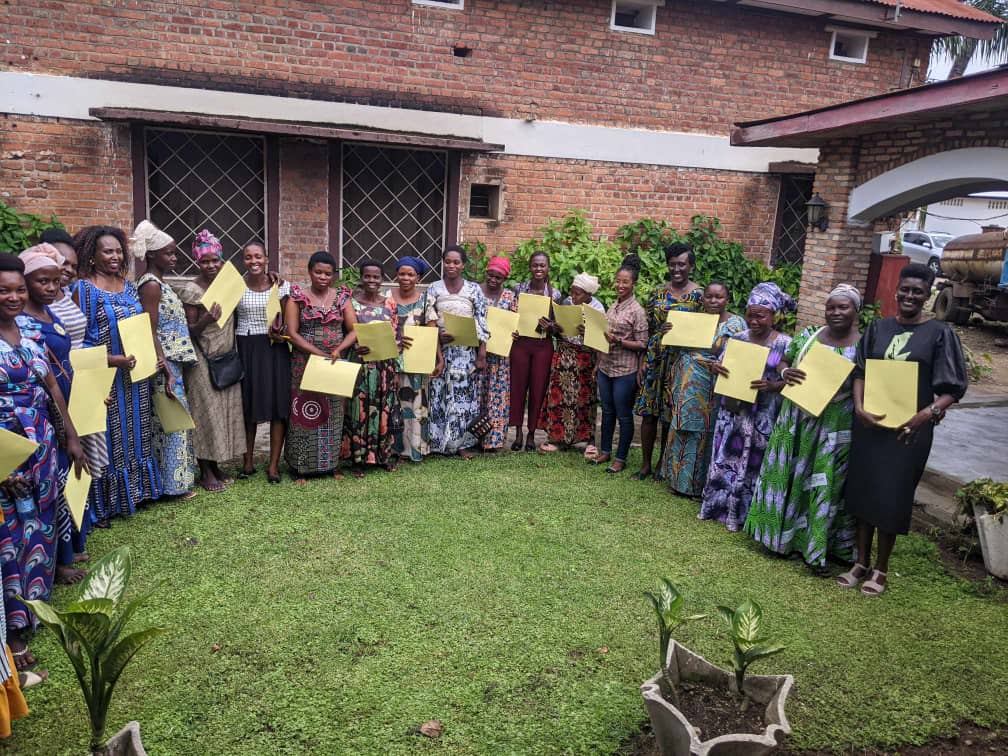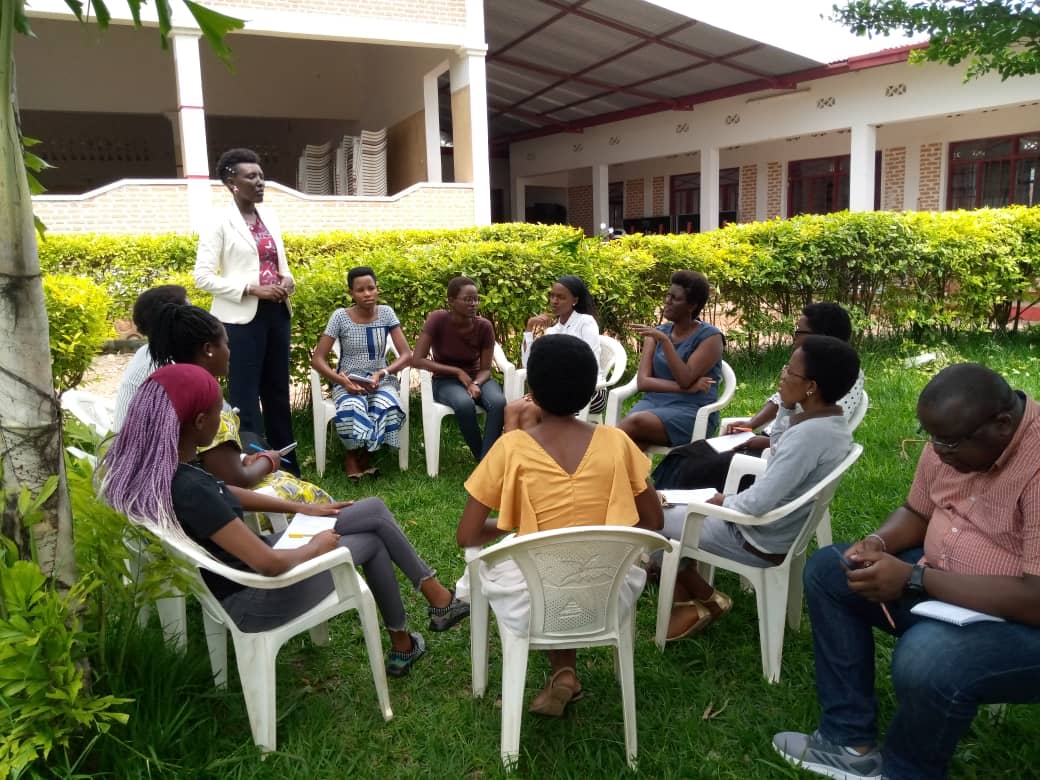Subscribe to our E-Letter!
Subscribe to our e-mail and stay up-to-date with news and resources from street vendors around the world.
Growing up in a modest household of eight children, four girls and four boys, Alice Nkunzimana was raised by loving parents who instilled in her the profound values of Ubuntu, an African philosophy that emphasizes shared humanity, compassion, and interconnectedness, often expressed as “I am because we are.” Ubuntu promotes living in harmony and recognizing the dignity and worth of every individual. These principles laid the foundation for her lifelong journey toward justice and empowerment. Her family closely followed her education and provided every tool she needed to succeed, creating an environment where school attendance was the norm and higher education a clear expectation.
Her passion for social justice began early through an association for the defense of girls’ rights ( Association pour la promotion de la fille Burundaise). The organization emphasized economic empowerment as a pathway to freedom from violence and inequality. It is through these empowerment programs, that her passion for social justice was awakened.

She witnessed deeply rooted inequalities that prevented low-income families from meeting their basic needs, especially in Ngagara village in Bujumbura, Burundi where she currently resides and for her, achieving social justice is more than a cause, it is a calling.
Inspired by older siblings and encouraged by mentors in the girls’ rights organization, she pursued higher education despite the social norms in Burundi that often discourage girls from doing so. The organization encouraged its members, especially girls to become resourceful and independent, learning to create their own employment.
Alice’s mother was a small-scale trader, and from a young age, she was immersed in the realities of informal economy work. This upbringing gave her a clear understanding of the challenges these workers face, particularly the lack of recognition and protection. While she herself did not face specific personal challenges, she worked closely with people of varied educational backgrounds, and she learned quickly that explaining labor rights in Kirundi, (when laws are usually written in French) was a barrier in itself.

Her mother’s activities, paired with her involvement in girls’ rights advocacy, led her to embrace the cause of informal economy workers, who make up more than 80% of Burundi’s workforce, 60% of whom are women. The greatest challenge, she notes, is illiteracy, which makes legal education and capacity-building a daily uphill battle. But it is a battle she leads with persistence and purpose.
Alice was driven by the leadership skills she acquired through her early activism and she stepped into a leadership role at SYVEBU ( Syndicat de vendeurs et vendeuses du Burundi), where she shares her knowledge and experience with her fellow members. Her work focuses on legal awareness, workers’ rights education, and personalized coaching for women, some of whom have now expanded into cross-border trade and achieved financial independence.

She is inspired by the pioneering defenders of labor rights in her country such as Celestin Nsavyimana, whose work guides her advocacy efforts. Through their influence and the labor laws regulating informal economy work, she continues to fight for dignity and recognition.
“My proudest accomplishment so far is coaching women at SYVEBU who are now engaged in successful cross-border businesses. These women have not only gained financial independence but can now support their families with dignity. The remaining pressing challenge is the legal invisibility of women and their children due to the lack of civil marriage registration, which results in children being denied official identity.”
Her life’s mission, rooted in Ubuntu and forged in community struggle, is to ensure that every woman worker, regardless of her background, can live with dignity, rights, and full recognition.
Article by Dorcas Rachetee Ishimwe, Regional Communicator for West and Central Africa
Dorcas Rachetée Ishimwe is a communication and human rights enthusiast, currently serving as a Communication Officer for SYTRIECI Rwanda (Syndicat de Travailleurs Domestiques et Indépendants dans l’économie Informelle). Dorcas is deeply passionate about advocating for human rights through strategic communication.

By entering your personal data and clicking “Suscribe,” you agree that this form will be processed in accordance with our privacy policy. If you checked one of the boxes above, you also agree to receive updates from the StreetNet International about our work